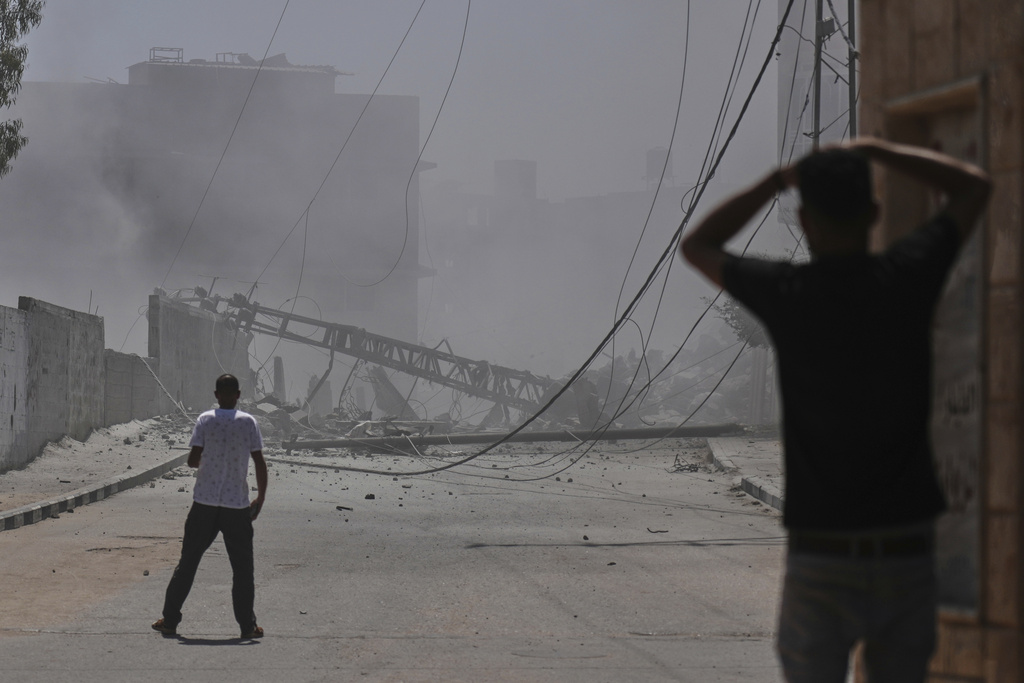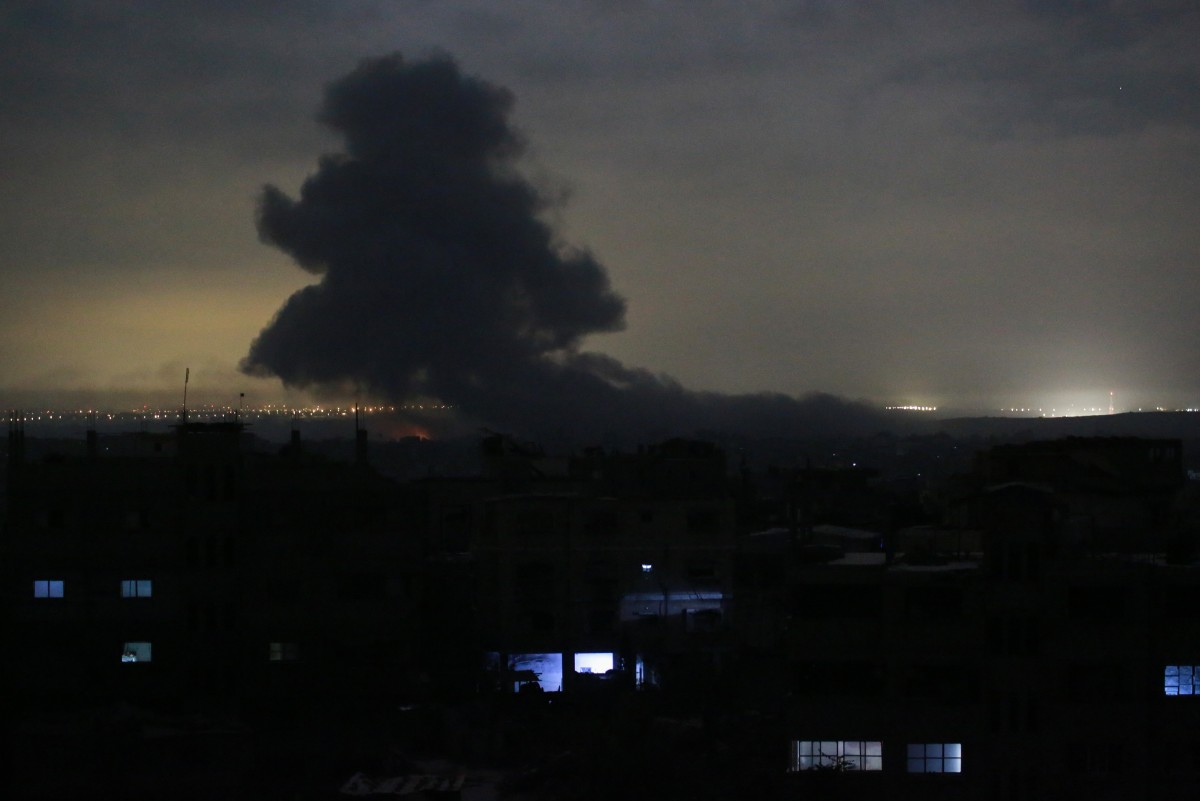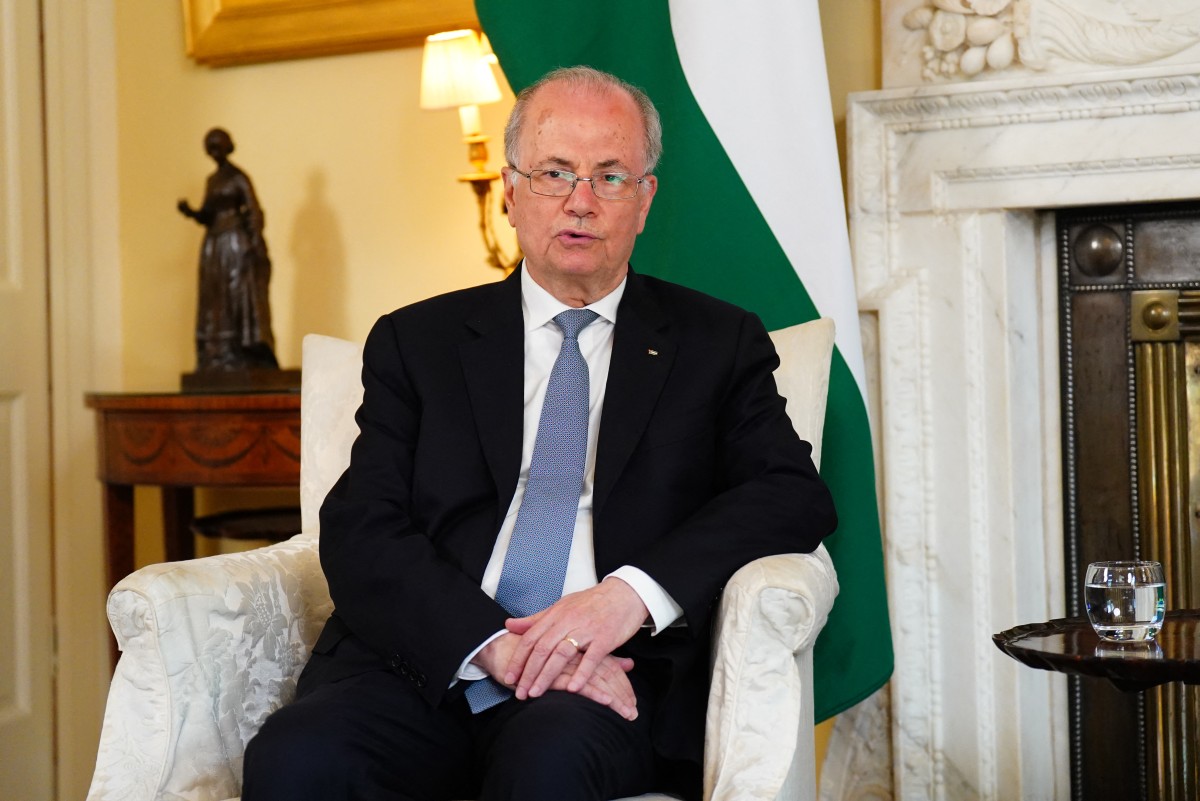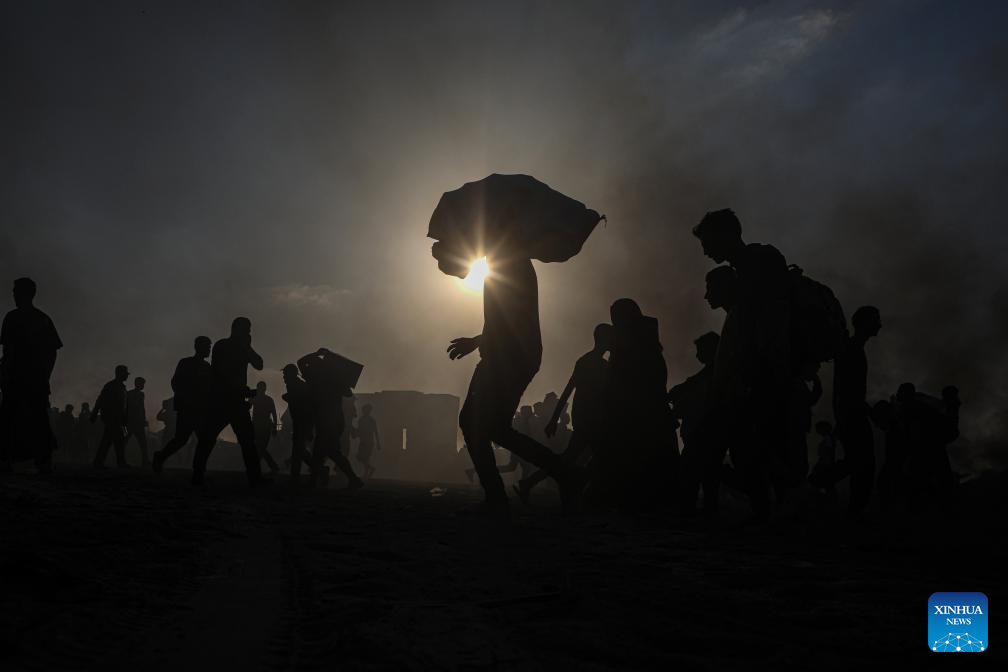
GAZA/RAMALLAH/UNITED NATIONS - As the military confrontation between Israel and Iran escalates, residents of the Gaza Strip watch anxiously, fearing the renewed tensions could further deteriorate their already dire humanitarian situation and push their longstanding plight even further from the global spotlight.
In Gaza City, Ibrahim al-Faryani, a Palestinian Authority employee in his 40s, closely follows reports of cross-border strikes.
"Now, global attention has shifted to Tehran and Tel Aviv, and Gaza has fallen off the media radar," al-Faryani said. "This loss of international focus may allow Israel to escalate violations here without scrutiny or accountability."
Since hostilities erupted between Israel and Iran on June 13, residents have reported a sharp drop in humanitarian aid reaching Gaza, citing continued closures of border crossings as a key obstacle.
"The humanitarian situation is deteriorating rapidly," said Mohammed Al-Emawi, a university student from Gaza's Shuja'iyya neighborhood. "No aid is entering. Hospitals are running out of basic supplies, and yet we receive little international coverage."
He warned that global preoccupation with the Iran-Israel conflict could overshadow the protracted crisis in Gaza, which has already endured months of conflict and blockade.
Amid widespread anxiety, some see the broader conflict as a potential opening for Gaza to gain international attention - and possibly inclusion in any future regional agreements.
"Perhaps this war will reshape the region," said Salem Subaih, another Gaza City resident. "If a major international agreement emerges, we hope Gaza will be included."
ALSO READ: West Bank life paralyzed as Israeli closure enters 3rd day amid regional tensions
Adel Samara, a political analyst based in the West Bank, said the Iran-Israel conflict has a dual impact on Gaza.
"On one hand, Gaza suffers from reduced media attention and worsening humanitarian conditions. On the other hand, this war might offer an opportunity to include Gaza in any future regional arrangement, especially if global powers become involved in de-escalation efforts," Samara told Xinhua.
He added that Palestinian factions are watching the situation closely, aware that shifting regional dynamics increasingly shape Gaza's position.

A Hamas official, speaking to Xinhua on condition of anonymity, said the confrontation underscores the interconnected nature of regional security and politics.
"Gaza is not isolated from its surroundings. We are monitoring developments and managing the situation carefully to avoid unnecessary escalation," the official said, adding that "the resistance is taking a rational approach, focused on protecting the Palestinian people."
Regarding ongoing talks on a prisoner exchange with Israel, the official noted that negotiations continue under international mediation but acknowledged that the latest tensions have slowed progress.
"Given the current situation, it is only natural that the pace and level of communication are affected," he said.
Amid these shifting dynamics, many Gazans are simply calling for an end to the violence and improvements to their daily lives.
"It is time for these wars to stop," said Muhannad Abu Rabie, a Gaza City resident. "We want to live in safety. We want electricity, water, medicine - basic human rights. We are tired of being collateral damage in conflicts we have no control over."

'Regional escalation should not distract attention'
Separately, on Tuesday, Palestinian Prime Minister Mohammad Mustafa said the escalation between Iran and Israel should not distract attention from the Israeli "aggression" against the Palestinian people in the Gaza Strip and the West Bank.
During a phone call with British Foreign Secretary David Lammy, Mustafa noted the importance of maintaining international momentum toward the Gaza Strip and not diverting focus from ending the war in the coastal enclave, allowing the entry of relief and humanitarian aid, and opening the crossings, according to a statement issued by his office.
He also stressed the importance of pushing toward a serious, multilateral political process for a permanent solution that ends the occupation and establishes a Palestinian state.

Killings of food-seeking Gazans condemned
Meanwhile, UN Secretary-General Antonio Guterres condemns as "unacceptable" the killing and injury of Gazans seeking food aid from the non-UN, militarized distribution sites, a spokesman said on Tuesday.
"The secretary-general condemns the loss of lives and injuries of civilians in Gaza who are once again being shot at while seeking food," said Farhan Haq, the deputy spokesman for Guterres. "It is unacceptable."
It is the harshest condemnation from the UN chief of the slayings.
The UN Office for the Coordination of Humanitarian Affairs (OCHA) said the Gaza Ministry of Health reported more than 338 people had been killed and more than 2,800 injured while trying to access food at the Gaza Humanitarian Foundation distribution hubs since the Israel- and US-backed program began in late May.
Haq said the secretary-general continues to call for an immediate and independent investigation into all reports of such killings and for accountability to be established.
The spokesman said the UN chief maintains that the basic needs of the Palestinian population in Gaza are enormous and remain unmet.
READ MORE: Health authorities: Israeli army kills 51 Palestinians waiting for aid in southern Gaza
"Israel has clear obligations under international humanitarian law to agree to and facilitate humanitarian relief for all civilians who need it," he said. "The unimpeded entry of humanitarian assistance at scale must be restored immediately. The UN and all humanitarian actors must be allowed to work in safety and security under conditions of full respect for humanitarian principles."


